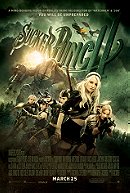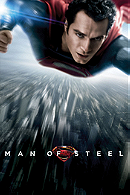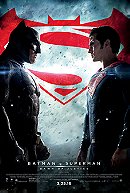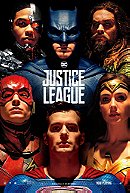Zack Snyder
Sort by:
Showing 6 items
Decade:
Rating:
List Type:
Watchmen (2009)
Based on Allan Moore’s seminal graphic novel, Snyder’s best film is about how all-American superheroes can be seen as both influential and potentially dangerous. Snyder’s interpretation of Moore’s seemingly ‘unfilmable’ novel is a satirical and endearing look at the destruction of humanity and the American Dream (“What happened to the American Dream? It came true, you’re looking at it!”). The film skewers our love of superheroes and light-hearted fictional tales. Snyder’s visceral and discomforting style illustrates how the characters have lost their sense of patriotism and self-respect. His visuals represent the characters’ inner turmoil. For example, Rorschach (Jackie Earle Haley) is a skulking, trench-coat and mask-wearing anti hero who is unable to care. He adapts to the dirty streets of New York as if to accept his oncoming doom. This philosophical character study is also a violent and pulpy action-drama. The non-linear structure depicts the rise and fall that each vital character goes through. Snyder handles The Comedian (Jeffrey Dean Morgan) and Dr. Manhattan(Billy Crudup)’s storylines with poetic grace and tangibility. Snyder’s sexy and brutally effective visual flourishes peak at the right times. One scene in particular showcases Snyder’s talent for visual composition. Dr. Manhattan is looking over a battlefield in Vietnam. Simultaneously, jets fly over him and Ride of Valkyries blares non-diegetically. With this scene, Snyder sums up the importance of this story. Snyder’s gritty and beautiful directorial style brings Watchmen to life. He paints a disturbing yet profound picture whilst conveying Moore’s thematic intentions.
When Watchmen came out in 2009, I was a pretty big fan. Not only do I adore Alan Moore and Dave Gibbons’ classic graphic novel, but I also thought Snyder brought it to the screen with incredible faithfulness and undeniable passion.Watching the Director’s Cut for the first time a few days ago, I can see that not only is the theatrical cut superior, but I also question if Watchmen should have ever been adapted so faithfully in the first place. Watchmen isn’t just a story about superheroes. It’s a story about superhero comic books, and trying to adapt that into a cinematic medium loses something along the way. The fidelity of the images may be unimpeachable, but Watchmen is a film that’s ahead of its time because it’s speaking the wrong language, cinema instead of comics.The graphic novel was having a conversation with other superhero comics at the time. It’s having a conversation with Batman in Rorschach (Jackie Earle Haley). It’s having a conversation with Superman in Doctor Manhattan (Billy Crudup). It’s pointing out how deeply flawed these heroes would be if they really existed, but it’s doing so within the context of comic books. By making a Watchmen movie, Snyder removed that context but kept the visuals to himself.And when it comes to Snyder adapting comics, we’re left to wonder how much credit he deserves for visuals he didn’t entirely create. He may be providing some animation and music, but when you use a graphic novel as a storyboard, a large amount of credit has to go to Dave Gibbons. These 3D recreations may be stunning, but they’re still recreations of another artist’s work.
Nevertheless, Snyder still manages to capture the electricity of Moore and Gibbons’ story, and he even manages to capture the human side of it. Sometimes, Snyder’s adoration for visual landscapes dwarfs his characters, but here he finds the beating heart of every one of his Watchmen thanks to excellent casting and performances (some people take umbrage with Malin Akerman’s Laurie Jupiter, but I think she does well). Watchmen is a story about a lot of things, and one of them is about broken humans trying to save humanity. Thankfully, the movie gets to the heart of these imperfect souls, and while the Director’s Cut may be longer and more violent, watching Hollis Mason (Stephen McHattie) get beat to death doesn’t make Watchmen a better movie. Rorschach pleading for death rather than compromise on his principles does, and that’s in every cut of the film.
If you’re willing to accept a number of (intentional) peculiarities, Watchmen does not at all ring as some carbon copy of Alan Moore’s graphic novel, but rather an overpowering meld of sound and image quite unlike anything released by a major studio in the 21st century. Disjointed though it absolutely may be, this is a movie of stop and start exhilaration, never once sacrificing the intent of vaunted source material as it propels along in reframing today’s most commercially successful cinematic subgenre. (The director’s eventual transition to Superman is all the more disappointing thus.) To that end, Watchmen is not so much a direct adaptation as much as it is a compliment, possibly even an expansion — and, no less, the most audacious comic book film ever made.
In spite of how marvelous Man of Steel was and is, Zack Snyder’s masterpiece is still 2009’s Watchmen. In typical Snyder fashion, it divided audiences. Some found it to be the most perfect adaptation of the Alan Moore comic imaginable; others cited it as proof that the material was inherently unsuited to film. As far as I’m concerned, the movie can wear its mixed reactions as a badge of honor, a testament to the specificity with which it approached its material, keeping true to its intentions and its earnest attempts to effectively adapt a story that is immense and challenging to begin with.
One of the wonders of witnessing a movie that is deemed by many to be unfilmable is that when it is done successfully, you get to see something that has never been done before on film. Put another way, the nature of works considered unfilmable require filmmakers to come up with innovative and unprecedented ways of screen storytelling simply in order to capture the essence of something that people think can’t be translated into a movie. It’s a challenge, and what’s remarkable about this feat is that the people who have the boldness to take on a challenge that is defined by its impossibility is that they also have the brashness and sensibility to actually pull it off. Watchmen is such a vast story that cramming it even into three hours while capturing so many of its elements is an accomplishment. And cranking out action that feels entirely novel yet eerily familiar to its comic source, like pages come to life, while harnessing a tone that remains consistent yet changes based on which character the story is focusing on at the moment, all while carrying out the original deconstruction of a genre, mixing in contemporary satire with the original political elements—it’s frankly incredible to behold.
This film is praised for being so faithful to the source material and doing it true justice. This superhero film is about an alternate version of life in which a band of retired superheroes come together to destroy a villain that is trying to murder all the superheroes. Amazing story and wonderful characters makes the true fan to cheer.
When Watchmen came out in 2009, I was a pretty big fan. Not only do I adore Alan Moore and Dave Gibbons’ classic graphic novel, but I also thought Snyder brought it to the screen with incredible faithfulness and undeniable passion.Watching the Director’s Cut for the first time a few days ago, I can see that not only is the theatrical cut superior, but I also question if Watchmen should have ever been adapted so faithfully in the first place. Watchmen isn’t just a story about superheroes. It’s a story about superhero comic books, and trying to adapt that into a cinematic medium loses something along the way. The fidelity of the images may be unimpeachable, but Watchmen is a film that’s ahead of its time because it’s speaking the wrong language, cinema instead of comics.The graphic novel was having a conversation with other superhero comics at the time. It’s having a conversation with Batman in Rorschach (Jackie Earle Haley). It’s having a conversation with Superman in Doctor Manhattan (Billy Crudup). It’s pointing out how deeply flawed these heroes would be if they really existed, but it’s doing so within the context of comic books. By making a Watchmen movie, Snyder removed that context but kept the visuals to himself.And when it comes to Snyder adapting comics, we’re left to wonder how much credit he deserves for visuals he didn’t entirely create. He may be providing some animation and music, but when you use a graphic novel as a storyboard, a large amount of credit has to go to Dave Gibbons. These 3D recreations may be stunning, but they’re still recreations of another artist’s work.
Nevertheless, Snyder still manages to capture the electricity of Moore and Gibbons’ story, and he even manages to capture the human side of it. Sometimes, Snyder’s adoration for visual landscapes dwarfs his characters, but here he finds the beating heart of every one of his Watchmen thanks to excellent casting and performances (some people take umbrage with Malin Akerman’s Laurie Jupiter, but I think she does well). Watchmen is a story about a lot of things, and one of them is about broken humans trying to save humanity. Thankfully, the movie gets to the heart of these imperfect souls, and while the Director’s Cut may be longer and more violent, watching Hollis Mason (Stephen McHattie) get beat to death doesn’t make Watchmen a better movie. Rorschach pleading for death rather than compromise on his principles does, and that’s in every cut of the film.
If you’re willing to accept a number of (intentional) peculiarities, Watchmen does not at all ring as some carbon copy of Alan Moore’s graphic novel, but rather an overpowering meld of sound and image quite unlike anything released by a major studio in the 21st century. Disjointed though it absolutely may be, this is a movie of stop and start exhilaration, never once sacrificing the intent of vaunted source material as it propels along in reframing today’s most commercially successful cinematic subgenre. (The director’s eventual transition to Superman is all the more disappointing thus.) To that end, Watchmen is not so much a direct adaptation as much as it is a compliment, possibly even an expansion — and, no less, the most audacious comic book film ever made.
In spite of how marvelous Man of Steel was and is, Zack Snyder’s masterpiece is still 2009’s Watchmen. In typical Snyder fashion, it divided audiences. Some found it to be the most perfect adaptation of the Alan Moore comic imaginable; others cited it as proof that the material was inherently unsuited to film. As far as I’m concerned, the movie can wear its mixed reactions as a badge of honor, a testament to the specificity with which it approached its material, keeping true to its intentions and its earnest attempts to effectively adapt a story that is immense and challenging to begin with.
One of the wonders of witnessing a movie that is deemed by many to be unfilmable is that when it is done successfully, you get to see something that has never been done before on film. Put another way, the nature of works considered unfilmable require filmmakers to come up with innovative and unprecedented ways of screen storytelling simply in order to capture the essence of something that people think can’t be translated into a movie. It’s a challenge, and what’s remarkable about this feat is that the people who have the boldness to take on a challenge that is defined by its impossibility is that they also have the brashness and sensibility to actually pull it off. Watchmen is such a vast story that cramming it even into three hours while capturing so many of its elements is an accomplishment. And cranking out action that feels entirely novel yet eerily familiar to its comic source, like pages come to life, while harnessing a tone that remains consistent yet changes based on which character the story is focusing on at the moment, all while carrying out the original deconstruction of a genre, mixing in contemporary satire with the original political elements—it’s frankly incredible to behold.
This film is praised for being so faithful to the source material and doing it true justice. This superhero film is about an alternate version of life in which a band of retired superheroes come together to destroy a villain that is trying to murder all the superheroes. Amazing story and wonderful characters makes the true fan to cheer.
Sucker Punch (2011)
This film was an original idea brought up by Zack Snyder and could've been a great story to view. Unfortunately this film was negatively viewed by critics and fans and ultimately was a let down for Snyder's legacy. Very little story arch and loss of character development had this film only holding on to it's stunning special effects.
It’s interesting the way perception of movies will change over time, and Sucker Punch is the one Snyder film that seems to be getting rehabilitated a little bit by critics revising the accepted opinion that the movie is a total disaster. And it’s about damn time. Perhaps it was because I arrived at seeing the movie after the hysteria had died down, perhaps because I put enormous trust in anything Jena Malone attaches her talents to, but I found it to be horribly misrepresented and misunderstood and treated with an utter lack of fairness or curiosity by the initial reviews.
Adam Quigley over at Slant has written on it and produced a really cool video essay delving into the layers of meaning that previous critics really had no interest in actually exploring. While folks like Harmony Korine and Terence Malick have somewhat earned the benefit of the doubt when it comes to questionable depictions of women, Zack Snyder’s female empowerment story (to be reductive) was seen as shallow. Apparently if you follow a predominantly scantily-clad male movie like 300 with its sexual inverse in Sucker Punch, many will be suspicious of your motives. But Sucker Punch, when considered as a revenge fantasy in the face of powerlessness, not unlike Inglourious Basterds (I see lots of similarities between Tarantino and Snyder, actually), works rather impressively. At the very least it’s worth a second look and possible reevaluation.
Sucker Punch is, at best, a woefully misguided feminist treatise. At worst, it’s an unbearable slog of total hypocrisy drenched in empty machismo.The movie has an interesting set-up: A young girl (Emily Browning) wants to escape a mental institution before she’s lobotomized, and recruits her fellow inmates to steal a list of items to aid in their jail break. The problem comes in the way it’s structured—the girl, Babydoll, is doomed before the film really even begins, and we’re witnessing fantasies layered on fantasies. The asylum is the reality, the brothel is the fantasy, and the action set-pieces that come when Babydoll dances are the double-fantasy.Some see this as a rich critique on the masculine gaze, but the problem with Sucker Punch (among the fact that the action scenes are tedious and have no stakes because they’re not real) is that it wants to have it both ways. It wants to hit you with the “sucker punch” of feeling guilty of having relished those dull set pieces and young women in skimpy outfits, but in truth, Snyder loves those things too. You can’t put that much effort into design and execution and then feign indifference or subversion. We don’t know what Babydoll loves because we never know her as a character. Why does she care about clockwork zombie Nazis? Did she have a grandfather figure who doled out fortune cookie wisdom? Those elements are Snyder stepping out from behind the camera intending to chastise but instead coming off as complicit.The “shared fantasy” really only belongs to Snyder, and I can’t believe that Warner Bros. gave him so much money to execute his lavish vision. On one level, I do admire the film’s bonkers ambition, but Snyder, who values visuals above all else, doesn’t understand how to best tell his own story. The sucker punch results in a miss and a faceplant.
Snyder’s pet project is a shrill and noisy mess. This may seem like a rude and bashful statement, but even Snyder’s biggest fans admit that Sucker Punch is a gigantic misstep. Placed into a mental institution (one layer of this schizophrenic narrative), the aptly-named ‘Babydoll’ fights with other stupidly-named characters inside a 12 year old boy’s wet dream. The other layers include a brothel (yeah…more than a little sexist!) and a video game-esque realm filled with weapons, scantily-clad women, decaying settings, and elaborate baddies. Putting himself in charge of writing and directing duties, Snyder shows only that he is competent with visual composition. Even though I am a Snyder fan, I can understand why a lot of people hate him after watching this film. It seems to skirt by due to the ‘so bad it’s good’ status it has unintentionally obtained. Creating three alternate timelines and realities, Snyder tries too hard to fit all of his influences and fetishes into each one. Snyder is clearly a misogynist. He puts his female characters into all kinds of trouble for no apparent reason. I wouldn’t mind this if there were any consequences or well-developed characters. But he creates a shallow, excessive extravaganza with a video game premise. As the film goes on, however, he shoehorns in a strange message about how everyone should use their mental health to fight for survival. It’s extremely strange and completely messy. Snyder’s first bad film (in my opinion) illustrates that he needs an MA15+(Australian rating) to make a satisfying live-action film.
It’s interesting the way perception of movies will change over time, and Sucker Punch is the one Snyder film that seems to be getting rehabilitated a little bit by critics revising the accepted opinion that the movie is a total disaster. And it’s about damn time. Perhaps it was because I arrived at seeing the movie after the hysteria had died down, perhaps because I put enormous trust in anything Jena Malone attaches her talents to, but I found it to be horribly misrepresented and misunderstood and treated with an utter lack of fairness or curiosity by the initial reviews.
Adam Quigley over at Slant has written on it and produced a really cool video essay delving into the layers of meaning that previous critics really had no interest in actually exploring. While folks like Harmony Korine and Terence Malick have somewhat earned the benefit of the doubt when it comes to questionable depictions of women, Zack Snyder’s female empowerment story (to be reductive) was seen as shallow. Apparently if you follow a predominantly scantily-clad male movie like 300 with its sexual inverse in Sucker Punch, many will be suspicious of your motives. But Sucker Punch, when considered as a revenge fantasy in the face of powerlessness, not unlike Inglourious Basterds (I see lots of similarities between Tarantino and Snyder, actually), works rather impressively. At the very least it’s worth a second look and possible reevaluation.
Sucker Punch is, at best, a woefully misguided feminist treatise. At worst, it’s an unbearable slog of total hypocrisy drenched in empty machismo.The movie has an interesting set-up: A young girl (Emily Browning) wants to escape a mental institution before she’s lobotomized, and recruits her fellow inmates to steal a list of items to aid in their jail break. The problem comes in the way it’s structured—the girl, Babydoll, is doomed before the film really even begins, and we’re witnessing fantasies layered on fantasies. The asylum is the reality, the brothel is the fantasy, and the action set-pieces that come when Babydoll dances are the double-fantasy.Some see this as a rich critique on the masculine gaze, but the problem with Sucker Punch (among the fact that the action scenes are tedious and have no stakes because they’re not real) is that it wants to have it both ways. It wants to hit you with the “sucker punch” of feeling guilty of having relished those dull set pieces and young women in skimpy outfits, but in truth, Snyder loves those things too. You can’t put that much effort into design and execution and then feign indifference or subversion. We don’t know what Babydoll loves because we never know her as a character. Why does she care about clockwork zombie Nazis? Did she have a grandfather figure who doled out fortune cookie wisdom? Those elements are Snyder stepping out from behind the camera intending to chastise but instead coming off as complicit.The “shared fantasy” really only belongs to Snyder, and I can’t believe that Warner Bros. gave him so much money to execute his lavish vision. On one level, I do admire the film’s bonkers ambition, but Snyder, who values visuals above all else, doesn’t understand how to best tell his own story. The sucker punch results in a miss and a faceplant.
Snyder’s pet project is a shrill and noisy mess. This may seem like a rude and bashful statement, but even Snyder’s biggest fans admit that Sucker Punch is a gigantic misstep. Placed into a mental institution (one layer of this schizophrenic narrative), the aptly-named ‘Babydoll’ fights with other stupidly-named characters inside a 12 year old boy’s wet dream. The other layers include a brothel (yeah…more than a little sexist!) and a video game-esque realm filled with weapons, scantily-clad women, decaying settings, and elaborate baddies. Putting himself in charge of writing and directing duties, Snyder shows only that he is competent with visual composition. Even though I am a Snyder fan, I can understand why a lot of people hate him after watching this film. It seems to skirt by due to the ‘so bad it’s good’ status it has unintentionally obtained. Creating three alternate timelines and realities, Snyder tries too hard to fit all of his influences and fetishes into each one. Snyder is clearly a misogynist. He puts his female characters into all kinds of trouble for no apparent reason. I wouldn’t mind this if there were any consequences or well-developed characters. But he creates a shallow, excessive extravaganza with a video game premise. As the film goes on, however, he shoehorns in a strange message about how everyone should use their mental health to fight for survival. It’s extremely strange and completely messy. Snyder’s first bad film (in my opinion) illustrates that he needs an MA15+(Australian rating) to make a satisfying live-action film.
Man of Steel (2013)
A lot of people don’t like this movie because it’s not “happy” or “lighthearted.”
Relatedly, a lot of people are boring garbage with terrible opinions on film who think Christopher Reeve was a good Superman.
Better to get this one out of the way. No matter the quality of its cast, Snyder’s appropriately epic treatment of a Superman fight, or its occasional willingness to play things a little kooky, Man of Steel is a limp and forgettable entry into the modern superhero canon. One of its few truly significant qualities is pretty evident in the placement: Snyder’s worst title. Here are some longer, fresh thoughts on the matter.
Relatedly, a lot of people are boring garbage with terrible opinions on film who think Christopher Reeve was a good Superman.
Better to get this one out of the way. No matter the quality of its cast, Snyder’s appropriately epic treatment of a Superman fight, or its occasional willingness to play things a little kooky, Man of Steel is a limp and forgettable entry into the modern superhero canon. One of its few truly significant qualities is pretty evident in the placement: Snyder’s worst title. Here are some longer, fresh thoughts on the matter.
I have extensive thoughts on what went wrong with this film—and how DC could have credibly built a cinematic universe—that I hope to share next week after folks have seen the film. Until then, you’ll have to make do with my review and this piece on the failure of Lex Luthor, as a character, that I wrote for the Washington Post.
Zack Snyder hit a gold mine with Man of Steel and will now become the face of what seems like a promising future with DC. This is considered to many fans as the best superhero of all time and to critics, one of the worst of the year. This film is about Batman trying to destroy Superman just in case Superman decides to go rogue. The fact that two of comics greatest heroes are in the same movie is enough to make any fan cry.
Zack Snyder hit a gold mine with Man of Steel and will now become the face of what seems like a promising future with DC. This is considered to many fans as the best superhero of all time and to critics, one of the worst of the year. This film is about Batman trying to destroy Superman just in case Superman decides to go rogue. The fact that two of comics greatest heroes are in the same movie is enough to make any fan cry.
The overseeing eye of DC’s attempted comic book movie takeover, Zack Snyder, has been making the rounds again this week with the official reveal of the Batman v Superman: Dawn Of Justice trailer via his Twitter account 2 days earlier than scheduled (courtesy of a leak online). The man behind the movie and its predecessor Man Of Steel (2013) has been making audience dividing pictures for over 10 years, and with 2016 likely to bring his most financially successful outing as he pits Batman and Superman against one another, I felt like there’d be no better time to rank all of the films that he has directed. So, this week’s edition of Ranked will countdown all of Zack Snyder’s movies from worst to best
 Login
Login
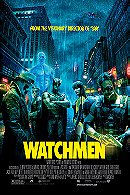
 3634
3634
 7.2
7.2
 7.6
7.6
